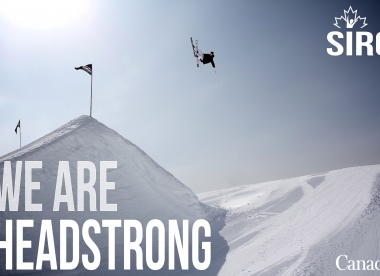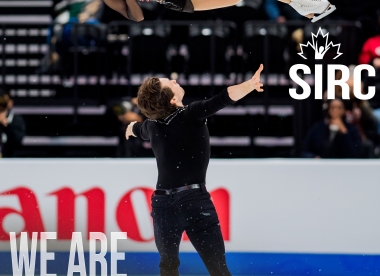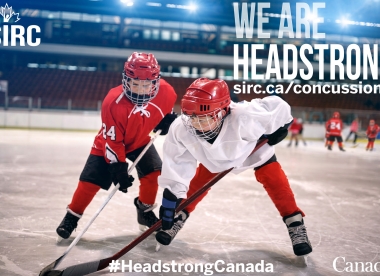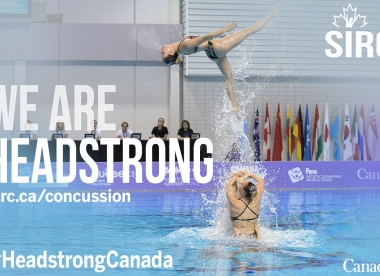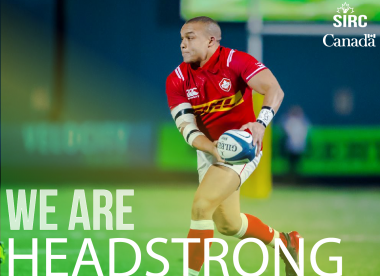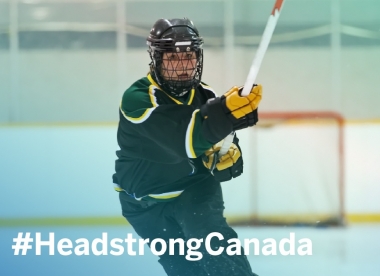
The four Rs of concussion management
Recognize
the signs and symptoms of a concussion
Remove
the athlete from the game or practice
Refer
the athlete to a licensed healthcare professional
Return
to school and then to sport based on the recommendations of a medical expert
We know which limits to push and which ones to respect.
We won’t let a short-term injury become a long-term battle.
We take concussions seriously. And you should too.
Recognize
If an athlete shows or reports any symptoms of concussion, or just “doesn’t feel right”, they should be removed from play and examined by a licensed healthcare professional.
Leading Resources
- Learn the signs and symptoms of a concussion
- Concussion Recognition Tool (pictured)
- Sport Concussion Assessment Tool (SCAT5)
- Concussions: a Fact Sheet for Coaches
- Concussions 101, a Primer for Kids and Parents
- Sport-Related Concussion: Information for Parents and Caregivers
These resources are all recommended by Sport Canada and Public Heath Agency of Canada
Remove
To properly treat and manage a concussion, it is important that an athlete is immediately removed from the game or practice following a concussion. However, removing an athlete from play is not an easy decision, which is why it is important to have informed and relevant policies and procedures in place to ensure athletes are protected.
Leading Resources
Only a medical professional can officially diagnose a concussion, and there is rarely a licensed medical professional on the field of play. After removing a concussed athlete from the field of play, refer them to a license medical professional to receive an informed diagnosis and recovery plan.
Leading Resources
Athletes who return to activities before recovering from a concussion are more likely to sustain a second concussion with more severe symptoms. However, once the brain has healed and with a licensed medical professional's approval, an athlete can gradually start returning to physical activities.
Returning to play safely requires patience, attention and caution, and will be a different experience for every athlete.
Leading Resources
Check to see if your sport has released its specific protocols for dealing with concussion.
|
|
Get customized resources for parents, athletes and coaches, including the latest concussion research, guidelines and tools.
The harmonized Guideline and toolkit provides tools for:
The latest concussion news from SIRC
Success Stories
Concussions and success don’t often belong in the same sentence. Thanks to the collaborative efforts of organizations across Canada and the harmonized guidelines, Canadian athletes are better protected from the long-term risks of concussions than ever before.
Here are some success stories from athletes and sport organizations in Canada:
Download your concussion toolkit
Help spread awareness about concussions with posters, videos and other marketing materials.
Marketing resources
In these files you’ll find ready-made communication tools for spreading the campaign messages within your organization. Please contact us if you would like source artwork to create your own co-branded versions.
VIDEO
Campaign video
If you need a downloadable version, please contact SIRC
HANDOUTS
One page handout - Four Rs of Concussion
One page handout - postcard format
SOCIAL MEDIA CONTENT
Prepared social media content (ZIP file)
POWERPOINT TEMPLATE
16:9 Wide Screen
4:3 Full screen
ADVERTISEMENTS - PRINT
ADVERTISEMENTS – WEB BANNER
728x90
300x250 (1) | 300x250 (2)
160x600
POSTERS
SOCIAL MEDIA CONTENT
Educational resources
We’ve assembled some of the valuable Concussion awareness and prevention resources made available through our partners. Please download or use as inspiration to make your own tools.
Concussion Recognition Tool
Concussions: a Fact Sheet for Coaches
Concussions 101, a Primer for Kids and Parents
Sport-Related Concussion: Information for Parents,and Caregivers
Canadian Harmonized Concussion Protocol Template
Canadian Harmonized Concussion Protocol Checklist
Medical Assessment Letter
Medical Clearance Letter
Sport Concussion Assessment Tool - 5th Edition (SCAT5)
Child Sport Concussion Assessment Tool - 5th Edition (Child-SCAT5)
Pre-Season Concussion Education Sheet
Canadian Sport Concussion Pathway
Sport-Specific Return-to-Sport Strategy Adaptation Tool
What’s Your Concussion IQ?
Pocket Concussion Recognition Tool
Player Code of Conduct
Concussion Card
Hockey Canada: Team Meetings
Hockey Canada: Emergency Action Plan for Hockey
Created by Parachute Canada, Concussion Ed gives Canadian parents, youth and educators free access to critical concussion resources.
A tool from Hockey Canada for anyone interested in learning about the prevention, recognition, and response to a concussion, including responsible return-to-play protocol.
World Rugby’s concussion app, designed for anyone involved in Rugby - players, coaches, parents, teachers, match officials, spectators, and anyone else with a role or interest in the Game.





